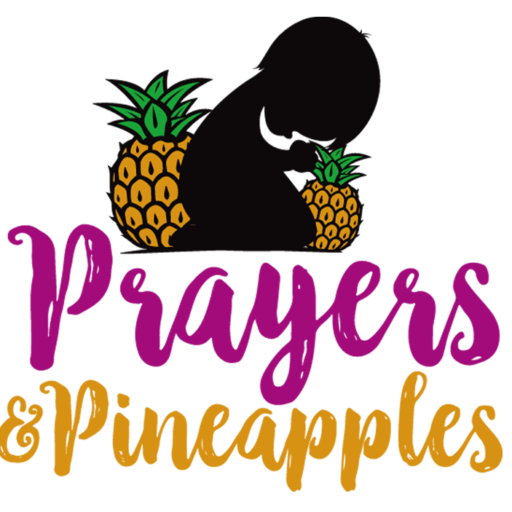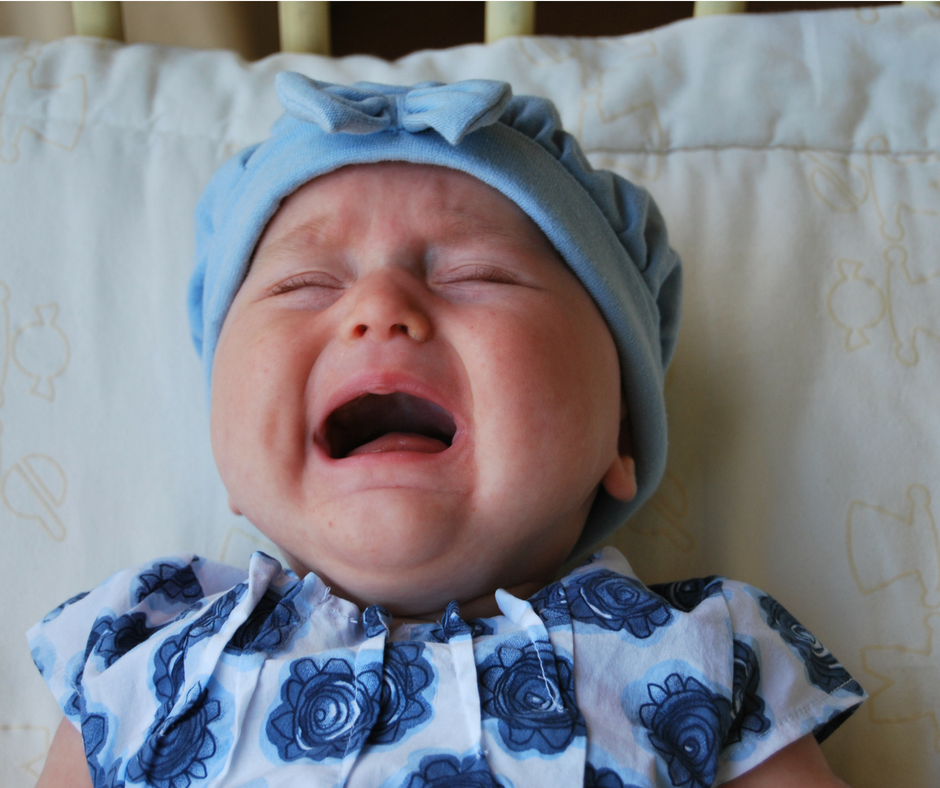
My Fussy Baby & SPD
My first born was such an easy child. I can say that now. Looking back it was hard, she had colic and GERD, she’d scream from 7pm-7am. It was hard. That lasted several months. However she would take naps and when she slept she SLEPT. I remember times when she’d fall asleep on the living room floor and I’d run a vacuum cleaner right next to her….it did not phase her. She loved bath time, ate everything in sight, and was a happy girl. I felt prepared to be a mother with this one. Of course we’re all a perfect parent before we have kids, aren’t we? Even my pregnancy with her was easy. I had like one bout of nausea, didn’t get stretch marks, and the only thing that looked pregnant on me was my nose. I had symphis pubis dysfunction (*not the SPD this post is referring to) and 39 hours of labor that turned into a c-section but that’s the only “hard” thing I have to look back on.
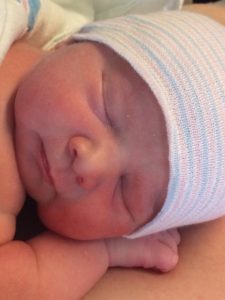
My second born. She came along and blew every perceived notion that I had of what parenting was right out of the water. My second child has taught me how little I know about ANYTHING! I’ve never felt more unqualified for anything in my entire life, as I have the past few years, in regards to parenting her. The pregnancy was so hard and I was constantly at the doctor. I had symphis pubis dysfunction and a c-section w/her as well, but I had hyperemesis gravidarum, gestational diabetes, gestational hypertension, chronic headaches and fatigue. It was insane how different the two pregnancies were. She had her tummy pumped on day 1 or day 2, she was vomiting from the get go, and always fussy. Thankfully I was able to nurse her because it was the one thing that could comfort her a good majority of the time.
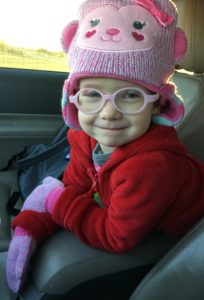
I remember when she was around 9 months old I was watching her sit on the floor one day. I just stared at her and I told my husband, “There’s something different about her.” He was quick to respond, “There’s NOTHING wrong with her!” I could tell I hit a sore spot. I said, “I didn’t say there was anything wrong with her, I’m just saying there’s something different about her. There just is.” I noticed early on that she didn’t like loud noises. I wouldn’t try to shield her from daily noises like the dishwasher, dryer, vacuum, etc, but I’d stay away from loud crowded places that I knew would cause a lot of overwhelm. I recognized which diapers and types of clothing she could tolerate and which ones seemed to torture her, and I mean make her scream bloody murder. I also realized that she wasn’t interested in foods like my oldest daughter had been. There was a certain cookie we could buy that she would gum on for a bit, then she would nurse some, but she wouldn’t eat. In fact, we could hold up food to her face and the mere sight of foods could make her gag or even vomit and leave her screaming and crying. She was slow to roll over, to sit, to stand or walk. She didn’t play the same way that I was accustomed to babies playing. I felt like she was just “stuck” in her own little world and everything made her unhappy and I couldn’t fix it. She constantly seemed unhappy, cried, screamed, and had “tantrums”. Then one day things changed for the better: we got help.
It was time to meet our new pediatrician, our former pediatrician of 8 years had just retired, and the new pediatrician took a particular interest in her motor skills, eating/oral aversion, vomiting, etc. She immediately started putting in orders for us to see another G.I. dr, speech eval, and occupational therapist. She basically catapulted us to where we are now. She saw it, too. I’m thankful for her. When we got in to see the Occupational Therapist, she had a really long assessment/evaluation, and she was diagnosed with Sensory Processing Disorder. The therapist is amazing, she’s been such a blessing to us, and our daughter has made great strides under her care. We’ve learned so much from her O.T. and continue to learn every week. We also learned that the issues with food come partly from SPD, in fact, eating/oral aversion can be a big issue with sufferers of SPD. I know my daughter has oral/eating aversion in part due to her gastrointestinal issues as well.
There is SO much to learn about SPD! If any of what I’ve said so far sounds like your child then please consider talking to your doctor about your concerns. Early intervention is key! So what is Sensory Processing Disorder? It’s like a traffic jam in the brain and messages aren’t received properly. You can learn so much more about SPD here!
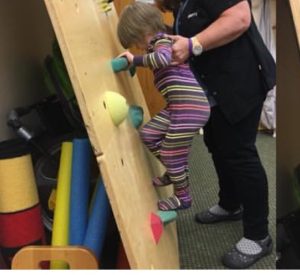
My daughter’s quality of life has improved significantly since she started Occupational Therapy/Feeding Therapy/Speech Therapy/Behavioral Therapy. She’s no longer in Behavioral Therapy, she does Speech Therapy at her local, public school, and she has Occupational/Feeding Therapy with the same O.T. we’ve had the past two years. We are blessed! What are little things we do at home to help with SPD? Sometimes Posie wears a weighted vest and we do “heavy activities” . We have sensory bins full of different textures, rices, hard noodles, buttons, and different accessories. She plays with peg boards, wooden puzzles, legos, linking blocks, medicine balls, and string beads. All these things that she thinks are just “play” are intentional therapy tools. She helps sweep with her Melissa and Doug broom and mop set and helps get the laundry in and out of the dryer. I provide a safe place for her to climb, run, and play. We purchased a Gorilla Gym for her the Christmas before last and it’s been pretty great because it can be used all day – EVERYDAY – say goodbye to extreme weather keeping the littles from swinging! We ordered a weighted blanket to help her keep calm and sleep better. (For full transparency, she struggles with insomnia still so the blanket was not a cure-all, but it helps when she’ll use it) We purchased an ark grabber for oral motor use and also a z-vibe for stimulation. Basically a lot of what you may have around the house can help with sensory issues, it’s just about being intentional and providing the children the right opportunities. We learned that a lot of her “tantrums” were actually sensory meltdowns and she actually calms down when I “brush” her using the Wilbarger Protocol. I’m going to be sharing much more about SPD, how it’s affected our family, and what has or hasn’t worked for us, so keep checking back for more posts!! (Eventually!)
“Children are a heritage from the Lord, offspring a reward from Him.” Psalm 127:3 (NIV)
